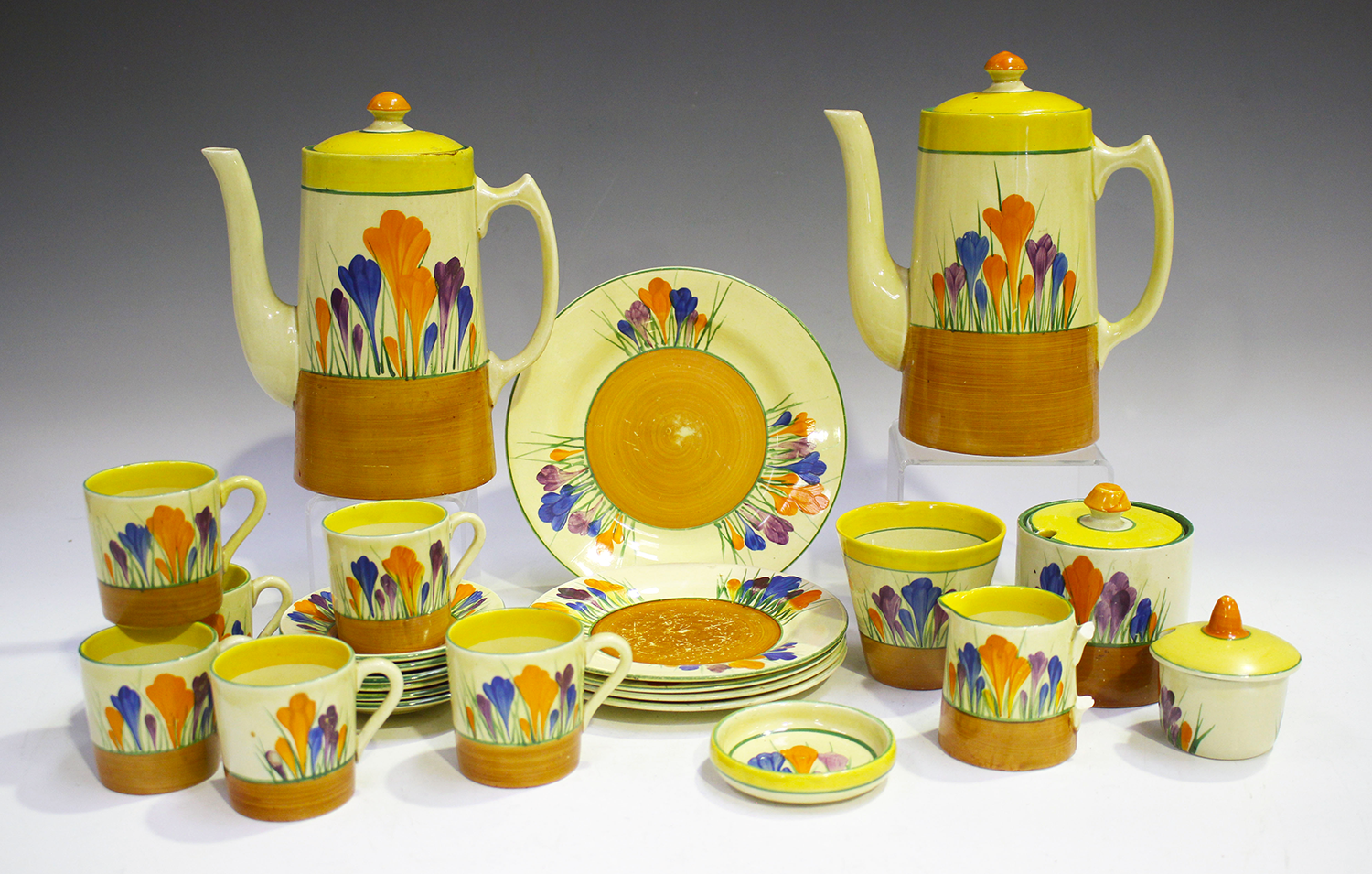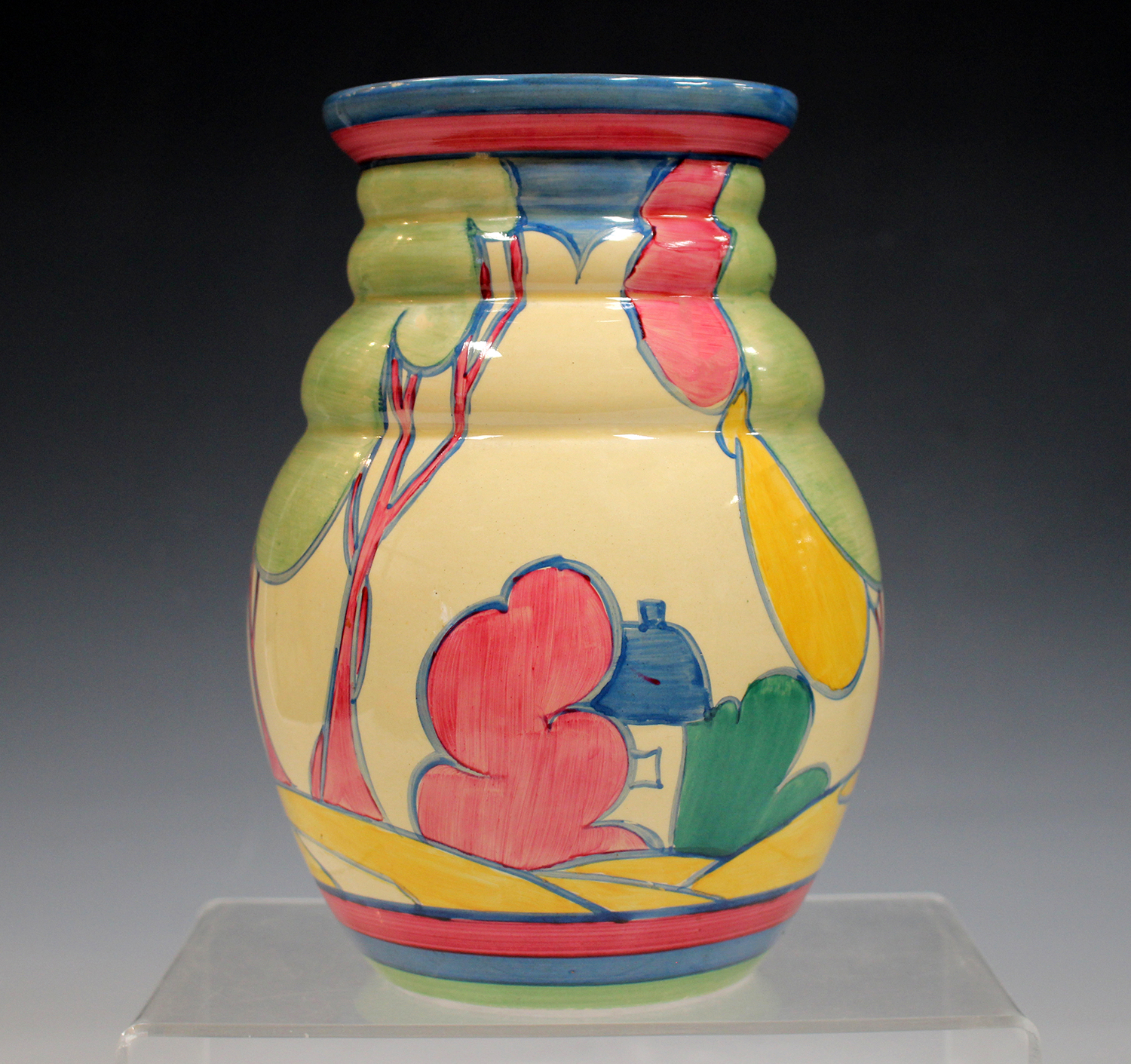
Amongst the most influential women designers and industrialists of the 20th century was Clarice Cliff. Born in 1899 she grew up in Tunstall. Her father worked in an iron foundry whilst her mother took in washing.
When she was thirteen Clarice Cliff started working in the pottery industry as a gilder and studied art and sculpture at the Burslem School of Art.
In 1916 Clarice moved to AJ Wilkinson at Newport Burslem. Her ambitious nature was apparent even at this young age as she worked hard to acquire the skills of modelling, gilding, banding and painting. All the time she was building up and keeping pattern books.
By the 1920s she had caught the eye of the decorating manager at AJ Wilkinson, Jack Walker. Jack brought her to the attention of one of the factory owners Arthur Colley Austin Shorter. Shorter became her patron and later divorced his first wife to marry Clarice Cliff.
In 1927 Shorter gave Clarice her own studio in his Newport Pottery. It was here that she began to paint her free hand patterns employing on-glaze enamels which were much brighter than underglaze colours. Her wares were immediately popular and she was joined by a young painter, Gladys Scarlett.

Clarice Cliff called her work Bizarre and ‘The Bizarre by Clarice Cliff’ stamp was used between 1928 and 1936.
The abstract and cubist decorations, often arranged in geometric patterns, were influenced by Art Deco and modernist motifs.
In 1928 Clarice Cliff produced the simple Crocus pattern painted with flowers in orange, blue and purple with confident upstrokes as can be seen on the coffee service. The pattern was hugely popular throughout the 1930s and still delights collectors today.
The Fantasque range evolved between 1926 and 1934. The first in the range was decorated with an abstract depiction of a cottage in a woodland landscape like the Autumn pattern baluster vase with its pastel glazes. The designs were again influenced by the Art Deco.
The Crocus coffee service and the Fantasque vase were both entered for auction at Toovey’s from private collections and realised £800 and £900 respectively.
By 1929 Clarice Cliff had a team of seventy women working for her. They became known as the Bizarre girls.
In the light of her extraordinary success Clarice Cliff was appointed Art Director at Newport Pottery and AJ Wilkinson in 1930, and we will explore this next period in her remarkable career in a future article.